Filter by

Green economy in the transport sector : a case study of Limpopo Province, Sou…
This open access book is interdisciplinary and provides cross-sectoral and multi-dimensional exploration of sustainable development and transportation in South Africa. Drawing on work from different disciplines, the book contributes not only to academia but also seeks to inform urban and regional policy with the view of contributing to the national aspirations of South Africa as espoused in the…
- Edition
- -
- ISBN/ISSN
- 9783030861780
- Collation
- xiii, 119 p. : color, ill.
- Series Title
- -
- Call Number
- 388.096825 ODI g
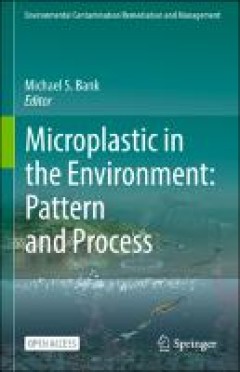
Microplastic in the environment: pattern and process
This open access book examines global plastic pollution, an issue that has become a critical societal challenge with implications for environmental and public health. This volume provides a comprehensive, holistic analysis on the plastic cycle and its subsequent effects on biota, food security, and human exposure. Importantly, global environmental change and its associated, systems-level proces…
- Edition
- -
- ISBN/ISSN
- 9783030786274
- Collation
- xv, 354 p. : ill.
- Series Title
- Environmental Contamination Remediation and Management
- Call Number
- 363.738 BAN m
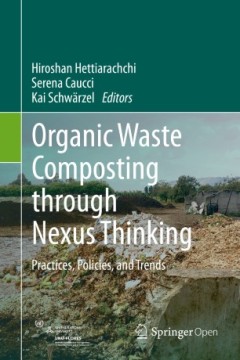
Organic waste composting through nexus thinking : practices, policies, and tr…
Organic waste composting is another excellent example to demonstrate the power and the benefits of nexus thinking. Even though organic waste composting itself is not a new topic, those who want to start a new project or align an ongoing project with nexus thinking, find it difficult to gather the necessary information. With nine case studies from four continents, this book aims to fill above ga…
- Edition
- -
- ISBN/ISSN
- 9783030362836
- Collation
- viii, 232p. : ill.
- Series Title
- -
- Call Number
- 668.6375 ORG o
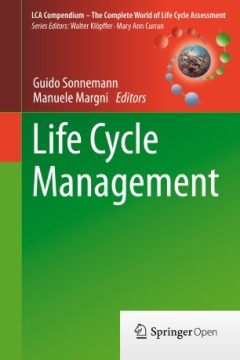
Life cycle management
This book provides insight into the Life Cycle Management (LCM) concept and the progress in its implementation. LCM is a management concept applied in industrial and service sectors to improve products and services, while enhancing the overall sustainability performance of business and its value chains. In this regard, LCM is an opportunity to differentiate through sustainability performance on…
- Edition
- -
- ISBN/ISSN
- 9789401772211
- Collation
- xvii, 353p. : ill.
- Series Title
- -
- Call Number
- 658.5 GUI l
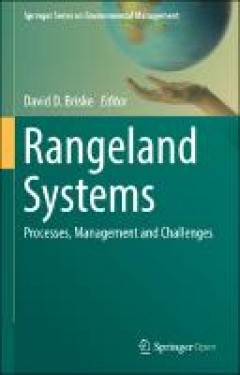
Rangeland systems: process, management and challenges
This book is open access under a CC BY-NC 2.5 license. This book provides an unprecedented synthesis of the current status of scientific and management knowledge regarding global rangelands and the major challenges that confront them. It has been organized around three major themes. The first summarizes the conceptual advances that have occurred in the rangeland profession. The second addresse…
- Edition
- -
- ISBN/ISSN
- 9783319467092
- Collation
- xv, 661p.: ill.
- Series Title
- -
- Call Number
- 577.4 RAN r
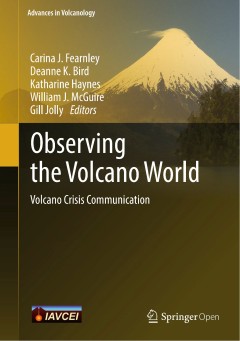
Observing the volcano world : volcano crisis communication
This book provides a comprehensive overview of volcanic crisis research, the goal being to establish ways of successfully applying volcanology in practice and to identify areas that need to be addressed for future progress. It shows how volcano crises are managed in practice, and helps to establish best practices. Consequently the book brings together authors from all over the globe who work w…
- Edition
- -
- ISBN/ISSN
- 9783319440972
- Collation
- xv, 771p. : ill.
- Series Title
- -
- Call Number
- 551.21 OBS o
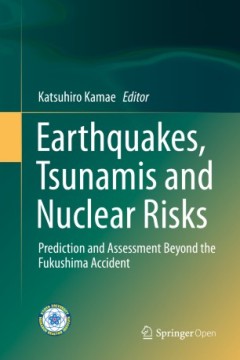
Earthquakes, tsunamis and nuclear risks : prediction and assessment beyond th…
This book covers seismic probabilistic risk assessment (S-PRA) and related studies which have become more important to increase the safety of nuclear facilities against earthquakes and tsunamis in the face of the many uncertainties after the Fukushima accident. The topics are (1) Active faults and active tectonics important for seismic hazard assessment of nuclear facilities,(2) Seismic source …
- Edition
- -
- ISBN/ISSN
- 9784431558224
- Collation
- xii, 177p. : ill.
- Series Title
- -
- Call Number
- 621.4835 EAR e
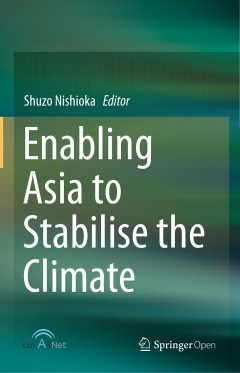
Enabling Asia to stabilise the climate
This book presents good practices in Asia and ASEAN countries for effectively promoting advances in response to climate change, which can help to achieve sustainable development in Asia and around the world. As a proposal, the aim is to influence the discussions at COP 21 by providing a positive agenda with concrete actions from an Asian perspective. The book is divided into three parts. Part 1…
- Edition
- -
- ISBN/ISSN
- 9789812878267
- Collation
- x, 270p. : ill.
- Series Title
- -
- Call Number
- 338.927 ENA e
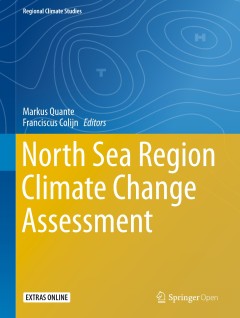
North Sea region climate change assessment
This book offers an up-to-date review of our current understanding of climate change in the North Sea and adjacent areas, as well as its impact on ecosystems and socio-economic sectors. It provides a detailed assessment of climate change based on published scientific work compiled by independent international experts from climate-related disciplines such as oceanography, atmospheric sciences, m…
- Edition
- -
- ISBN/ISSN
- 9783319397450
- Collation
- xlv, 528p. : ill.
- Series Title
- -
- Call Number
- 363.73874 NOR n
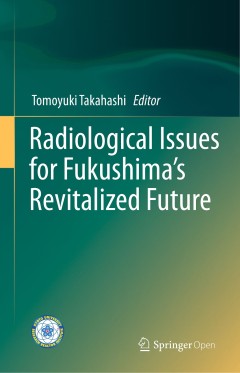
Radiological issues for Fukushima's revitalized future
This book overviews environmental issues 4 years after the Fukushima nuclear accident, covering a wide range of areas related to radiation and radioactivity. The topics discussed are necessary to make clear the relationship between the results of research and Fukushima’s revitalized future. The chapters are divided into four parts: Part 1 presents the identification of radionuclides in soil a…
- Edition
- -
- ISBN/ISSN
- 9784431558484
- Collation
- xiii, 232p. : ill.
- Series Title
- -
- Call Number
- 363.738 RAD r
 Computer Science, Information & General Works
Computer Science, Information & General Works  Philosophy & Psychology
Philosophy & Psychology  Religion
Religion  Social Sciences
Social Sciences  Language
Language  Pure Science
Pure Science  Applied Sciences
Applied Sciences  Art & Recreation
Art & Recreation  Literature
Literature  History & Geography
History & Geography